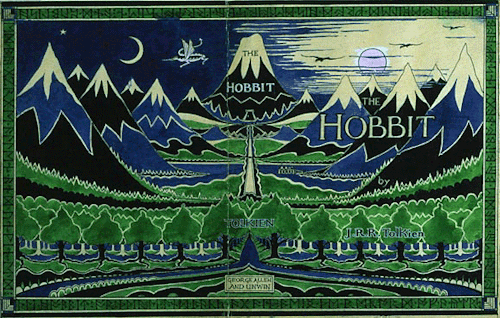Not a month goes by when some agent or editor doesn’t decry
prologues. Allegedly they drive away readers and signal poor quality fiction;
they are labeled unnecessary and signs of poor craft, too short or abrupt, useless and dissonant from the
main narrative. Last night I talked to an agent who said she tosses any
manuscript that features one.
I’ve never been rejected over a prologue. It’s just a pet
peeve of mine because not a month goes
by when I don’t read a popular novel from traditional publishing that opens
with a prologue. When they’re poor, I simply skip to the main body of the
novel, as I suspect most audiences actually do.
But if this anti-prologue dogma is going to be preached at all
emerging writers, the industry ought to hold their actual employees to it.
Below is a very incomplete list of some notable prologue-uses.
1. J.K. Rowling’s Harry Potter and the Sorcerer’s Stone
(debut novel)
2. Patrick Rothfuss’s The Name of the Wind (debut novel)
3. Patrick Rothfuss’s Wise Man’s Fear (Locus nominee for
Best Fantasy Novel 2012 –1/5)
4. Brandon Sanderson’s Elantris (debut novel)
6. Stephanie Meyer’s Twilight (debut novel)
7. Vernor Vinge’s The Children of the Sky (Locus nominee for
Best Science Fiction Novel 2012 – 1/5)
8. Stephen King’s Carrie (debut novel)
9. Stephen King’s Salem’s Lot
10. Stephen King’s The Dead Zone (King’s first #1
Bestseller)
11. Stephen King’s 11/22/63 (Locus nominee for Best Science
Fiction Novel 2012 – 2/5)
12. Christopher Paolini’s Inheritance Series Book 1: Eragon
(debut novel)
13. George R.R. Martin’s A Game of Thrones (debut novel)
14. George R.R. Martin’s A Clash of Kings
15. George R.R. Martin’s A Storm of Swords
16. George R.R. Martin’s A Feast for Crows
17. George R.R. Martin’s A Dance with Dragons (Hugo nominee
for Best Novel 2012 – 1/5; Locus nominee for Best Fantasy Novel 2012 – 2/5)
18. Max Brooks’s World War Z: An Oral History of the Zombie
War (debut novel)
19. Daniel Abraham’s A Shadow in Summer (debut novel)
20. Daniel Abraham and Ty Franck’s Leviathan Wakes, as
‘James Corey’ (Hugo nominee for Best Novel 2012 - 2/5; Locus nominee for Best
SciFi Novel 3/5)
21. Jo Walton’s The King’s Peace (debut novel)
22. Jo Walton’s Among Others (Hugo nominee for Best Novel
2012 - 3/5; Locus nominee for Best Fantasy Novel 2012 – 3/5; Nebula nominee for
Best Novel 1/6)
23. Terry Pratchett’s The Color of Magic (debut novel)
24. Terry Pratchett’s Snuff (Locus nominee for Best Fantasy
Novel 2012 – 4/5)
25. Catherynne Valente’s Deathless (Locus nominee for Best
Fantasy Novel 2012 – 5/5)
26. Garth Nix’s Abhorsen Trilogy Book 1: Sabriel
27. Garth Nix’s Abhorsen Trilogy Book 1: Lirael
28. Garth Nix’s Abhorsen Trilogy Book 3: Abhorsen
29. Seanan McGuire’s October Daye Book 1: Rosemary and Rue
(debut novel)
30. Seanan McGuire’s The Newsflesh Trilogy Book 1: Feed, as
‘Mira Grant’ (debut novel as Mira Grant)
31. Seanan McGuire’s The Newsflesh Trilogy Book 2: Deadline,
as ‘Mira Grant’ (Hugo nominee for Best Novel 2012 – 4/5)
32. China Mieville’s Perdido Street Station (debut novel)
33. China Mieville’s The Scar
34. China Mieville’s Embassytown (Hugo nominee for Best
Novel 2012 – 5/5; Locus nominee for Best SciFi Novel 4/5; Nebula nominee for
Best Novel 2/6)
35. N.K. Jemisin’s The Kingdom of the Gods (Nebula nominee
for Best Novel 2012 – 3/6)
36. Jack McDevitt’s Firebird (Nebula nominee for Best Novel
2012 – 4/6)
Just imagine a publisher shunting one of those debut novels over a prologue. Now,
remember how many times J.K. Rowling was rejected. And you know what? It's susceptible to all the criticisms lobbed at aspiring authors in workshops, and it's perfectly functional.
Two
of the six Nebula nominees for Best Novel lack prologues: Kameron Hurley’s God’s
War and
Genevieve Valentine’s Mechanique: A Tale of
the Circus Tresaulti. God’s War has literary quotes from
The Bible and The Quran, but nothing resembling narrative in the way of Mira
Grant’s blog excerpt about “The Wall” or Vernor Vinge’s Chapter 00. Meanwhile,
the fifth of the five Locus nominees for Best SciFi Novel is
Charles Stross’s Rule 34, which I’m
told lacks a prologue - I don’t have a copy and couldn’t find a preview online.
So out of all the books nominated for a Nebula, Hugo or
Locus this year, either two or three of the twelve open with Chapter 1. None of
those books nominated for more than one of the awards lacks a prologue. All of
the nominees that hit #1 on the New York Times Bestseller List have prologues. Of the nine-out-of-twelve majority,
guess how many of the prologues are short and dissonant from Chapter 1.









